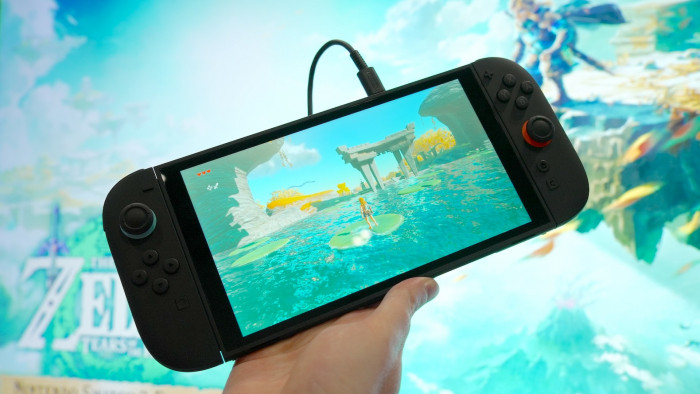American Samoa, of the World Cup qualifier 31-0 loss infamy, are fielding the planet’s first transgender player. Andrew Dickens meets Jaiyah Saelua
Interviewing footballers is usually a simple task. You ask how their health compares to that of a parrot, their position in relation to the moon, what will happen ‘at the end of the day’ and, just occasionally, something about football. Today, it’s less simple. Today I’m interviewing no ordinary footballer.
Jaiyah Saelua is a hard-hitting international centre-back; the kind of no-nonsense stopper who can put the ball into Row Y and the opponent into Row Z. Saelua also plays in make-up, straightens her hair in the dressing room and wraps her towel at chest height, before slipping into a mini skirt for the post-match drinks. But this isn’t women’s football. Jaiyah Saelua, you see, is the world’s first transgender international footballer. And, therefore, I’m in need of some different questions.
Standing 6ft 2in out of heels, in them, 25-year-old Saelua, who’s also sporting coral pink lipstick and red nails, is some presence. She’s in London to promote Next Goal Wins: an excellent documentary by British filmmakers Steve Jamison and Mike Brett. The film follows American Samoa’s national team, they of the infamous 31-0 defeat to Australia in 2001, as they attempt to secure their first ever win – a small step towards this year’s World Cup and no little pride. It’s a wholesome, heart-warming counter-balance to an otherwise extravagant build-up to Brazil. It will make several people famous, perhaps Saelua most of all.
The third gender
“Mentally, I don’t think I’m ready for fame,” she says. “I’m getting used to interviews, but very few people from home get this attention. It’s pretty exciting, but I think I’m more nervous than happy about what’s going to happen.”
Her trepidation is understandable. Being transgender, especially in the world of professional sport, is not the norm here, so we take an interest; hence this article. The nature of that interest will vary, and, from some low-functioning minds, it won’t always be pleasant. This isn’t something she’s used to – at home she’s as ‘normal’ as anyone else. She is fa’afafine; a third gender, common among the Samoan islands, seen as being closer to God because they embody the best qualities of both sexes.
In a tiny country whose 60,000 population is roughly 98 per cent Christian, and not in a census-ticking ‘weddings and funerals only’ way, such understanding, indeed reverence, is perhaps surprising. But then I’m not sure the Bible offers much advice on gender identity issues. According to Saelua, this is culture rather than religion at play.
“The basis of our culture is respect,” she says. “Respect for God, respect for your family, and everyone in general. In Samoan culture, religion plays a big role but it doesn’t affect the respect factor.
“Samoan people look at the inside of people, more than what they wear or what they have between their legs.
“As fa’afafine, you have cultural duties. Your duties are more for the family than yourself. We keep the family organised in many different ways, doing men’s and women’s duties when there’s a lack of one or other in the family. In most cases it’s easy, but in some families acceptance doesn’t come so easily, but only because of this Western idea that we should grow up doing ‘boy’ things.”
Facing opposition
If football is a ‘boy thing’, then Saelua, whose birth name is Jonny, had to wait until she was 11 before first kicking a ball, when her school entered a competition which featured mixed teams of boys and girls. She was inspired by how the girls were the most physical players, and it shows. Saelua may run like a girl (her words), but she hits harder than most men, putting her body on the line for the cause, her team’s captain in all but name. Think John Terry in mascara. Actually, don’t.
“I got [negative comments] on the pitch against Cook Islands and Tahiti,” she says, “I guess it’s just strategy, trying to discourage me by name-calling. But little did they realise that it actually made me play more tough. I brushed it off easily because what they say doesn’t matter to me. They’re nobodies to me. If it came from someone that I truly cared about, then it would hurt.”
I mention the current debate around the lack of openly gay professional footballers. Her only use for a closet is to hang clothes, including a fantastic ‘I LOVE BOOBS’ T-shirt she wears during one team gathering in the film.
She informs me that there is no Samoan word for gay; any male with ‘feminine ways’, no matter how they dress, is fa’afafine.
“It’s so sad,” she says. “But that’s coming from someone who’s accepted within their team. I have no fear. I can’t imagine how it would be to have to hide who I truly am with my team-mates. I feel that can restrain someone from reaching their highest potential within the sport.”
Being who she truly is hasn’t always worked out for Saelua.
In the film, she briefly mentions her trial for her university team in Hawaii and how nerves stopped her from performing to her best. When I ask about this, the pain is extremely apparent.
“Realising that I wasn’t home and that these boys might not accept me,” she says, before pausing. “Sorry, I always get shaky when I think back to that day.
I guess the fear came from not knowing what was going to happen and not knowing what their reactions could be. I wasn’t scared of them not accepting, it was more not knowing what was going to happen.”
What did happen was shameful in the extreme.
“I got pulled aside by the head coach. He told me he didn’t want his players in an uncomfortable situation and he sent me home. I was more sad than angry. You know, not getting that chance to show how good I was.”
Passion play
And this is Saelua. She doesn’t define herself by gender, she defines herself by performance. There’s no self-pity or anger about her and, although she hopes to one day become an advocate for transgender people, politics are secondary. It’s all about the love of the game. So much so that she’s delaying her transition to full physical femininity in order to play in America Samoa’s qualifiers for the 2018 World Cup in Russia.
“My passion for soccer has a higher priority than my want to become a woman,” she says. “I have friends who already have breasts and girl figures. I look at them and think, ‘Am I really doing the right thing?’ But then I think that soccer is more important than that. Beauty can wait.”
It’s hard to imagine the enormity of that dedication. Saelua is putting the biggest event of her life on hold for a chance to play in a country that legally discriminates against her way of life (Putin, she says, “needs a smack on the head”). Compare that to players here balking at multimillion pound contract offers or holding their own clubs to ransom and, well, at the end of the day, they shouldn’t be feeling too over the moon about themselves.
Next Goal Wins previews nationwide on 7 May and is at select cinemas from 9 May










